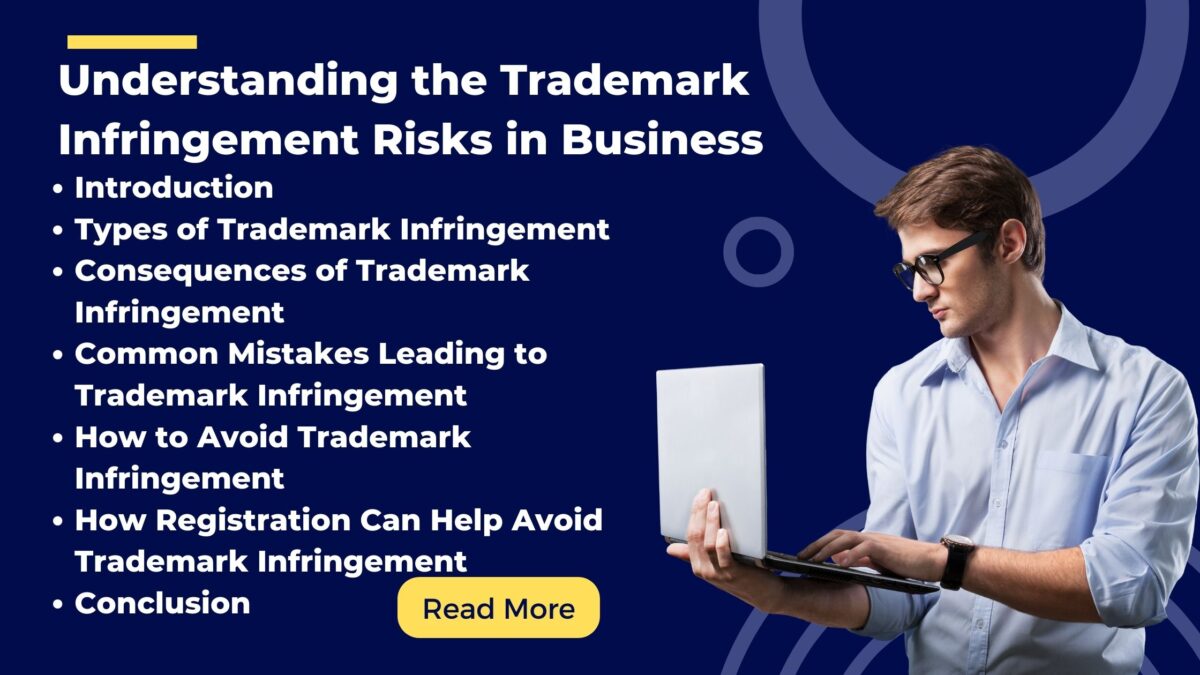Understanding the Trademark Infringement Risks in Business

I. Introduction
In today’s competitive market, protecting your brand is paramount. One of the most critical aspects of trademark protection is understanding and mitigating the risks associated with trademark infringement.
II. Types of Trademark Infringement
Trademark infringement can take various forms, each with its own legal implications:
- Direct infringement: This occurs when a party uses a trademark that is identical or confusingly similar to another party’s registered trademark without authorization. Direct infringement is a clear violation of intellectual property rights and can result in legal action.
- Indirect infringement: Indirect infringement refers to actions that contribute to or facilitate trademark infringement by others. This can include supplying goods or services that are used in infringing activities or knowingly assisting in the infringement.
- Vicarious infringement: Vicarious infringement occurs when a party is held liable for trademark infringement committed by another party, such as an employee or a contractor. This type of infringement can arise when the party has the right and ability to control the infringing activities.
III. Consequences of Trademark Infringement
The consequences of trademark infringement can be severe and may include:
- Legal action: Trademark owners can take legal action against infringers, which may result in cease and desist letters, lawsuits, and potentially significant damages.
- Reputational damage: In addition to legal consequences, trademark infringement can also lead to reputational damage. Consumers may lose trust in the infringing business, leading to a decline in brand value.
- Financial implications: Trademark infringement can also have financial implications for businesses. In addition to potential legal fees and damages, businesses may incur costs associated with rebranding to avoid further infringement.
IV. Common Mistakes Leading to Trademark Infringement
Avoiding trademark infringement requires careful attention to detail and a thorough understanding of intellectual property laws. Common mistakes that can lead to infringement include:
- Failure to conduct a comprehensive trademark search: Before adopting a new business you should conduct a thorough trademark public search to ensure that the mark is not already in use by another party.
- Ignoring similar marks in different industries or regions: Trademark rights are often limited to specific industries or geographical regions. Ignoring similar marks in different industries or regions can lead to infringement.
- Assuming that a mark is safe to use because it has not been registered: While registration provides additional protection, trademark rights can still exist for unregistered marks based on prior use in commerce.
V. How to Avoid Trademark Infringement
To avoid trademark infringement, businesses should take proactive steps to protect their brands, including:
- Conducting a thorough trademark search: Before adopting a new trademark, businesses should conduct a comprehensive search to ensure that the mark is not already in use by another party.
- Consulting with a trademark attorney: A trademark attorney can provide valuable guidance on trademark issues and help businesses navigate the complex process of trademark registration.
- Monitoring trademarks for potential conflicts: Regular monitoring of trademarks can help businesses identify potential infringement issues early and take appropriate action to address them.
- Obtaining trademark registration: While registration is not required to establish trademark rights, it provides additional protection and can help businesses enforce their rights more effectively.
VI. How Registration Can Help Avoid Trademark Infringement
- When it comes to protecting your brand, trademark registration plays a crucial role, especially in a city like Indore where businesses are thriving. Let’s take an example of Trademark registration benefits in Indore and can help businesses avoid infringement issues.
- Legal Protection: Trademark registration provides businesses with the legal right to take action against infringers, offering protection in the competitive market of Indore.
- Deterrent to Infringers: The existence of a registered trademark can deter others from using a similar mark, reducing the risk of infringement issues in Indore.
- Exclusive Rights: Registration grants businesses exclusive rights to use their mark, helping prevent others from using a similar mark in Indore.
VII. Conclusion
Trademark infringement can have serious consequences for businesses, such as legal action, reputational damage and financial consequences. By understanding the risks and taking proactive steps to protect your brand, you can protect your business and its reputation. Conducting a thorough trademark search, consulting with a trademark attorney, and monitoring potential trademark conflicts are important steps to avoid infringement.
F&Q
Q: What is trademark infringement?
A: Trademark infringement occurs when a party uses a trademark that is identical or confusingly similar to another party’s registered trademark without authorization.
Q: How can businesses avoid trademark infringement?
A: To avoid trademark infringement, businesses should conduct a thorough trademark search before adopting a new trademark, consult with a trademark attorney, monitor trademarks for potential conflicts, and obtain trademark registration to protect their mark.
Q: What are the consequences of trademark infringement?
A: The consequences of trademark infringement can be severe and may include legal action, reputational damage, and financial implications.








